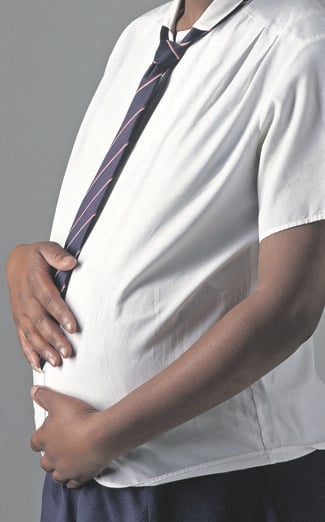
The 2018 Recorded Live Births report issued by Stats SA a few weeks ago contains some fascinating information.
Did you know, for instance, that 381 of registered births were to mothers between the ages of 50 and 54, meaning there are a lot of Janet Jacksons within our borders?
And that Enzokuhle, Melokuhle and Amahle were the most popular names given to girls.
Gender-neutral names such as Enzokuhle, Melokuhle, Omphile and Amogelang were the most popular among both sexes.
For middle names for girls, Precious, Princess and Angel got the nod.
For some reason, Junior was the most common second name in seven provinces.
Only KwaZulu-Natal and Mpumalanga bucked this trend, with Lubanzi being popular in the coastal province and the Zimbabwe-inspired Blessing being chosen in the place of the rising sun.
Now we come to a concrete fact that proves a theory that people tend to snuggle a lot in winter.
The figures reflect a five-year trend of the highest proportion of births happening in March.
“This indicates that, over the five-year period, birth occurrences were likely to be conceived during June or July,” Stats SA said.
To further cement this, November had the lowest percentage of bambinos joining the human race, showing that much less action takes place during the sweaty, humid months at the beginning of the year.
The above are the interesting bits.
Buried in the cold stats is also some rather bleak information.
In the section that spoke about how soon after birth a child is registered, we learnt that more than 95% of mothers aged between 25 and 39 tend to register their children within the first year of birth, while about 94% of those aged between 20 and 24 do the same.
Then came this line: “A high proportion of births registered later than the year of occurrence was observed among age groups 10 to 14 years (60.2%) and 50 to 54 years (48.6%).”
Yes, 10 to 14 years old.
The reported figures added that the highest registrations were in Gauteng and KwaZulu-Natal, which are the most densely populated provinces.
This applied to all ages and “the only exception was teenage mothers (aged 10 to 14), where the Eastern Cape had the highest number of births occurring among teen mothers (317), followed closely by KwaZulu-Natal with 310 births registered to teenage mothers”.
Yes, again, 10 to 14 years old.
We reported on the Ratlou Local Municipality in North West, where information gathered from clinics reveals that 487 underage girls are either pregnant or already have children.
In a population of just 100 000, this is a big figure.
Many of them are impregnated by older men who lure them with offers of money and food. As is the norm, the man vanishes as soon as the seed is planted.
The mother then has to turn to other men for economic support.
As one of the girls told City Press, “my child’s father is not supportive, but things are better now because I have a new boyfriend who is a bit caring and does help sometimes”.
Teen pregnancy is not unique to South Africa. Millions of children are born to girls aged between 15 and 19 throughout the world every year, particularly in the developing world, where poverty makes women more vulnerable to patriarchal abuse.
And the same pattern plays out in all these societies as girls are forced to halt their educational development to raise children.
Read: When access to sexual health education and services is a matter of life or death
The guys move on to other hunts. In the 2017 demographic health survey, Stats SA reported that “early childbearing among young women is more common in nonurban areas”.
It also said that the highest wealth quintile had the lowest incidence of teenage pregnancy, while the lowest had the biggest prevalence.
This again highlighted the vulnerability of poor women, particularly those in rural areas.
The same survey warned of the health risks faced by children born to very young mothers, and by the mothers themselves.
The mothers are also “more constrained in their ability to pursue educational opportunities than young women who delay childbearing”.
There is also the social dysfunction that comes with children raising children.
No matter how much love they can give, they lack the maturity to mould a rounded human being as they themselves are not yet fully moulded.
This phenomenon of teenage pregnancy is not yet being treated as the crisis it is.
From time to time, we get alarming statistics from one agency and department of state or another, and the country goes into a tailspin.
There is outrage and calls for action. The authorities promise to address the situation, whatever that means.
The moralists and the religious froth, and call for the return to old values.
Then it goes quiet again – until the next set of statistics come out.
Cue the outrage. It is understandable why this is such a difficult issue to tackle in a sustainable way. Sexual intercourse is by its very nature private and therefore virtually impossible to police.
In cases where power relations dominate, it becomes harder to get disempowered young girls to refuse advances from boys.
Then, when money, other incentives and coercion come into the picture, the battle is lost.
But we absolutely have to move this issue up on our list of priorities.
It cannot remain a matter for seasonal outrage.
| |||||||||||||
| |||||||||||||




 Publications
Publications
 Partners
Partners








